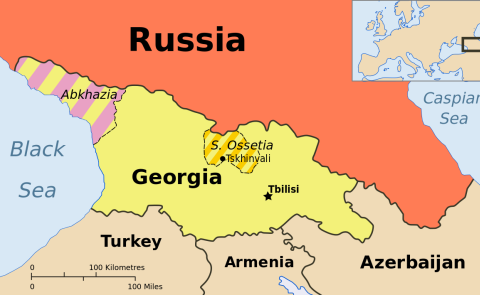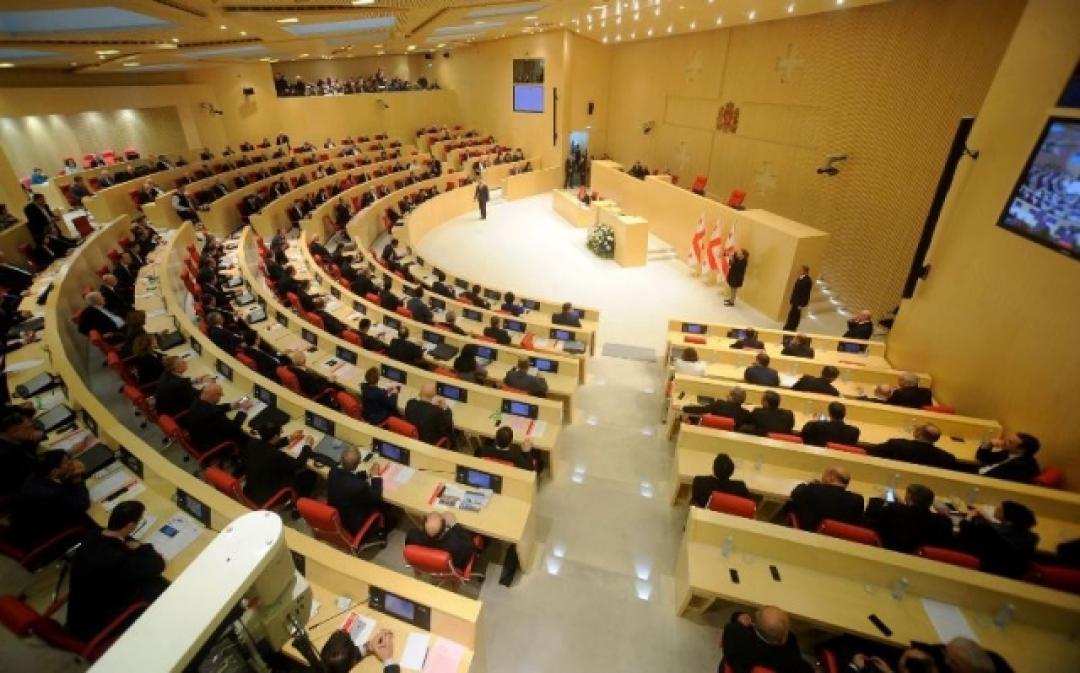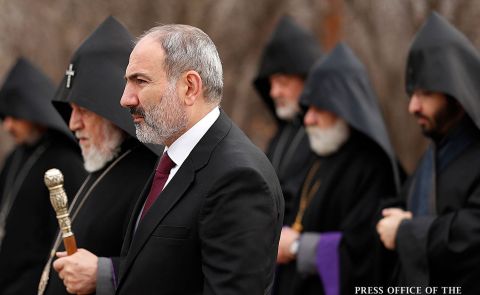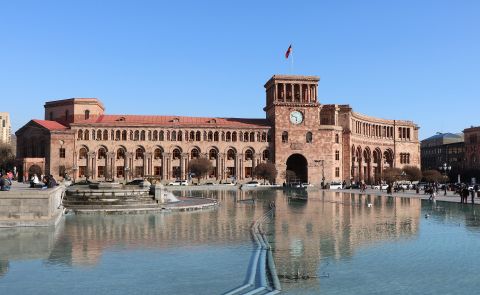
Georgian Parliament Criticizes the MEGOBARI Act

On May 14, the Georgian Parliament issued a sharply worded statement in response to the U.S. House of Representatives’ approval of the MEGOBARI Act, describing the legislation as “extremely hostile” and “factually incorrect.” The statement framed the Act as a direct affront to the Georgian government, its citizens, and the state itself, attributing its passage to influence from a so-called “deep state” and cautioning that it would harm the reputation of the U.S. Congress.
The statement categorically rejects the bill’s premises, identifying what it describes as three “false accusations”: significant democratic regression in Georgia, active hindrance of Euro-Atlantic integration by the current administration, and the fostering of questionable ties with authoritarian states such as Russia, China, and Iran. According to the Georgian Dream party, these claims stem from disinformation and behind-the-scenes manipulation.
In rebutting the democracy-related criticisms, the Parliament pointed to a series of reforms enacted since 2012. These included constitutional changes, a reduction in prison populations and inmate fatalities, and asserted gains in judicial independence and media diversity. Referencing indicators from the World Justice Project, the European Court of Human Rights, and the Fraser Institute, the Parliament claimed Georgia outperforms several EU member states in areas such as press freedom, judicial integrity, and anti-corruption initiatives.
It further emphasized that elections in Georgia are free and fair and that state institutions maintain transparency and accountability. The right to peaceful protest, the statement claimed, is fully protected under Georgian law.
Noticeably absent, however, was any reference to recent domestic and international human rights reports alleging excessive use of force, unlawful detentions, and police violence during the November–December 2024 demonstrations. Instead, the government portrayed these events as a “violent five-day attempt to overthrow the constitutional order,” asserting that law enforcement acted with restraint and caused no long-term injuries.
The statement alleged that the primary threat to Georgian democracy in 2023–2024 stemmed from opposition to laws designed to enforce transparency on foreign funding (such as from USAID and NED) and to restrict what the government called “LGBT propaganda.” These efforts, it claimed, were met with orchestrated resistance from the “deep state.”
Addressing the bill’s criticism of Georgia’s Euro-Atlantic trajectory, the Parliament emphasized that it was the current government that embedded NATO and EU membership goals in the country’s constitution in 2017. It deflected blame for stagnation in the integration process onto “hesitant” Western partners rather than domestic policy failures. The 2023 granting of EU candidate status was cited as evidence of progress.
The statement further suggested that continued lobbying for NATO membership is currently unrealistic, given what it described as Washington’s and the Alliance’s lack of intention to expand to Georgia or Ukraine in the near future.
The Parliament rejected allegations that Georgia maintains inappropriate relationships with Russia, China, or Iran. It stressed the absence of diplomatic ties with Russia since the 2008 war and highlighted the fact that Russia continues to occupy 20% of Georgian territory. It noted that trade with Russia accounts for less than 12% of Georgia’s overall trade and that there have been no high-level visits to Moscow since 2012.
Georgia’s support for Ukraine was also underscored, with the statement pointing to the country’s alignment with over 600 international documents upholding Ukraine’s sovereignty. The Parliament also remarked that neighboring countries maintain deeper ties with Russia than Georgia does.
Regarding China, lawmakers argued that Georgia’s relations mirror those maintained by U.S. allies. As for Iran, the statement clarified that ties are minimal and fall short compared to Iran’s interactions with other regional states. The statement dismissed criticism of the Georgian Prime Minister’s presence at the Iranian president’s inauguration as unfounded and indicative of double standards.
The Georgian Dream statement concluded that the MEGOBARI Act reflects deep-rooted hostility within elements of the U.S. establishment and accused Congress of acting in alignment with these forces rather than independently. It argued that, instead of correcting past mistakes such as what it called unjust sanctions, Congress is poised to impose further punitive measures.
The statement warned that by advancing the MEGOBARI Act, Congress risks diminishing its credibility in the eyes of the Georgian public, drawing parallels with the European Parliament, whose resolutions, it claimed, have already lost legitimacy among Georgians.
In a final, sharply critical remark, the statement expressed regret that an institution once regarded as a citadel of democracy had, on May 5, 2025, tarnished its reputation through actions perceived in Georgia as unfair and antagonistic. It concluded with a hope that the incoming U.S. administration would manage to curb the influence of the “deep state,” thereby restoring Congress’s former stature and its relationship with Georgia.
See Also


Georgian Bishop Accuses Government Official of Plotting Assassination; Opposition Leader Alleges Husband’s Abduction

Armenian Government and Church Face Growing Tensions Over Leadership Allegations

Tensions Rise Between Russia and Azerbaijan Over Medinsky’s Ukraine Conflict and Karabakh Remarks

Chechen Official Outlines Conscription Rules for Russia-Ukraine War

